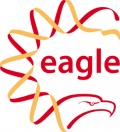| Please visit our ***NEW*** OBF/BOSC website: https://www.open-bio.org/ |
-
BOSC 2013
The 14th Annual Bioinformatics Open Source Conference (BOSC 2013) will take place July 19-20, 2013, in Berlin, Germany, right before ISMB/ECCB 2013.
Important Dates
|
Overview
The Bioinformatics Open Source Conference (BOSC) is a satellite of ISMB. It is sponsored by the Open Bioinformatics Foundation (O|B|F), a non-profit group dedicated to promoting the practice and philosophy of Open Source software development within the biological research community.
Open Source software has flourished in the bioinformatics community for well over a decade. When the first BOSC (Bioinformatics Open Source Conference) was held in 2000, there were already a number of popular open source bioinformatics packages, and the number and range of these projects has increased dramatically since then. BOSC covers the wide range of open source bioinformatics software packages that have been successfully developed and adopted by the community, and encompasses the growing movement of Open Science, with its focus on transparency, reproducibility, and data provenance. We welcome submissions relating to all aspects of open source bioinformatics software and open science, including new computational methods, reusable software components, visualization, interoperability, and other approaches that help to advance research in the biomolecular sciences. Two full days of talks, posters, panel discussions, and informal discussion groups will enable BOSC attendees to interact with other developers and share ideas and code, as well as learning about some of the latest developments in the field of open source bioinformatics.
Please spread the word about BOSC--all are welcome. On Twitter, follow @BOSC2013 and use hash tag #bosc2013.
Session Topics
- Cloud and Parallel Computing -- This session will cover cloud-based approaches to improving software and data accessibility. Talks will focus on how the community can build up resources, datasets, and workflows to make the best use of cloud infrastructure. We will also include talks on data-parallel approaches to analyzing massive data sets, such as those resulting from next-generation sequencing and mass spec proteomics, and reports on the parallelization of bioinformatics algorithms in general.
- Genome-scale Data Management -- This session will focus on processes and technologies for the analysis and management of genomic or other 'omic data.
- Visualization -- The main goal of data visualization is to communicate information clearly and effectively through graphical means. This session explores approaches to presenting large biomedical datasets with visual aids that make the data easier to understand and analyze.
- Software Interoperability -- This session covers Open Source approaches to integrating the latest bioinformatics tools. Building flexible, reproducible workflows with connected tools is essential to modern bioinformatics. The goal of this session is to investigate how we can increase tool connectivity and help communities work better together.
- Open Science and Reproducible Research -- New this year, this session encompasses the theory and practice of open science, including open notebook science, open data, transparent and reproducible workflows, and shared standards for reviewing and publishing research papers.
- Bioinformatics Open Source Project Updates -- This session will feature short talks from ongoing projects describing their recent progress. Abstracts will be solicited from open source projects affiliated with the O|B|F (see http://www.open-bio.org/wiki/Projects), including the Bio* projects, DAS, BioMOBY, EMBOSS, and GMOD, but any other open-source project will be equally eligible to submit abstracts for this session.
- Panel (TBD)
Keynote Speakers
Sean Eddy
Sean Eddy is a group leader at the Howard Hughes Medical Institute's Janelia Farm. He is interested in deciphering the evolutionary history of life by comparison of genomic DNA sequences. His expertise is in the development of computational algorithms and software tools for biological sequence analysis. He is the author of several computational tools for sequence analysis including the HMMER and Infernal software suites, as well as a coauthor of the Pfam database of protein domains. He serves as an advisor to several foundations and US science agencies, including the National Institutes of Health and the National Academy of Sciences, often on matters of large-scale computation and data analysis in biology.
Sean's talk is entitled Biological sequence analysis in the post-data era.
- Biological systems are almost unfathomably complex, yet their complexity is reproducibly specified by a small digital genome. We understand many basics of development and evolution but we lack a truly satisfying quantitative understanding of how biological complexity is specified and how it evolves. One important line of attack on the problem is to reconstruct the history of molecular evolution by comparative genome sequence analysis. Biological sequence comparison has a long intellectual history, but only recently, with the advent of inexpensive large scale DNA sequencing, have we gained comprehensive access to genome sequences from essentially all species. Though welcome, this influx of genome sequence data is exposing structural flaws in computational biology research tools. Because the research community values innovative science over infrastructure in any short-term decision, academic researchers have difficulty investing sufficient effort in robust software and datasets that may enable even more innovative science over the long term. Meanwhile, professional commercialization of the software and data infrastructure also continues to prove difficult, in part because open source code and data availability is a fundamental principle of scientific publication of reproducible, reusable results. I'll discuss what I see as some of the key tensions, challenges, and opportunities in these regard, in part in the context of our work at Janelia Farm on the HMMER and Infernal codebases, and our nascent work on the genomic specification of neural circuits in Drosophila.
Cameron Neylon
Cameron Neylon is Advocacy Director for the Public Library of Science, a research biophysicist and well known agitator for opening up the process of research. He speaks regularly on issues of Open Science including Open Access publication, Open Data, and Open Source as well as the wider technical and social issues of applying the opportunities the internet brings to the practice of science. He was named as a SPARC Innovator in July 2010 for work on the Panton Principles and is a recipient of the Blue Obelisk for contributions to open data. He writes regularly at his blog, Science in the Open.
Cameron will speak about Network ready research: The role of open source and open thinking:
The highest principle of network architecture design is interoperability. If Metcalfe's Law tells us that a network's value can scale as some exponent of the number of connections then our job in building networks is to ensure that those connections are as numerous, as operational, and as easy to create as possible. Where we make it easy for anyone to wire in new connections we maximise the ability of others to contribute to the value of our shared networks.
Bioinformatics has, from time to time, been derided as "slidedecks full of hairballs", yet those hairballs, and their ubiquity are emblematic of the fact that at its heart bioinformatics is a science of networks. Networks of physical interactions, of genetic control, of degree of similarity, or of ecological interactions amongst many others. Bioinformatics is also amongst the most networked of research communities and amongst the most open in the sharing of research papers, of research data, tools, and even research in process in online conversations and writing.
Lifting our gaze from the networks we work on to the networks we occupy is a challenge. Our human networks are messy and contingent and our machine networks clogged with things we can't use, even if we could access them. What principles can we apply so as to build our research into networks that make the most of the network infrastructure we have around us. Where are the pitfalls opportunities? And where are the opportunities? What will it take to configure our work so as to enable "network ready research"?
Sponsors
We thank Eagle Genomics, Ltd. for sponsoring three Student Travel Awards at BOSC 2012. Each student winner will get free admission to BOSC.
BOSC Open Source License Requirement
The Open Bioinformatics Foundation, which sponsors BOSC, is dedicated to promoting the practice and philosophy of Open Source Software Development within the biological research community. For this reason, if a submitted talk proposal concerns a specific software system for use by the research community, then that software must be licensed with a recognized Open Source License, and be available for download, including source code, by a tar/zip file accessed through ftp/http or through a widely used version control system like cvs/subversion/git/bazaar/Mercurial.
See the following websites for further information:
BOSC Organizing Committee
Chair
- Nomi L. Harris (Lawrence Berkeley National Laboratory)
Members
- Jan Aerts (Katholieke Universiteit Leuven)
- Brad Chapman (Biopython developer; Harvard School of Public Health)
- Peter Cock (Biopython developer; James Hutton Institute)
- Christopher Fields (National Center for Supercomputing Applications)
- Jeremy Goecks (Emory University)
- Hans-Rudolf Hotz (Friedrich Miescher Institute for Biomedical Research)
- Hilmar Lapp (National Evolutionary Synthesis Center)
Ex Officio (Members of the O|B|F Board)
Previous BOSCs
- The first BOSC was held in 2000.
- BOSC 2012 took place in Long Beach, California, in July 2012.
- Information about the first 12 conferences
Contact Us
- Follow BOSC on Twitter: @BOSC2013, #bosc2013
- If you'd like to join the mailing list for BOSC-related announcements, including the call for abstracts and deadline reminders, please subscribe to the Bosc-announce list. This list has low traffic, and your address will be kept private.
- If you have questions about the conference, or would like to volunteer to help out, please contact the organizers at bosc@open-bio.org.



